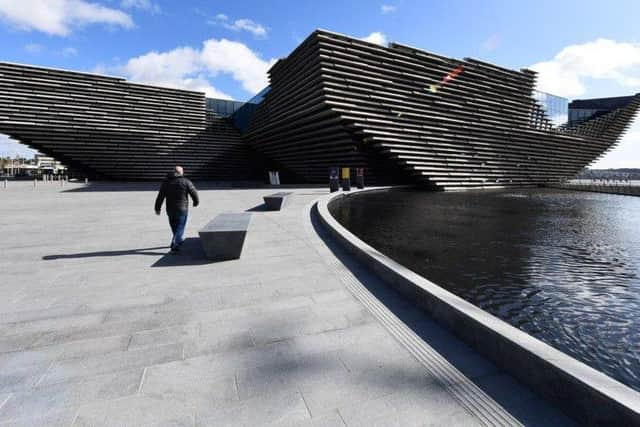Covid Scotland: 'No evidence' of need for travel restrictions to Dundee, says expert
The situation in Dundee is “something to watch rather than something to be worried about”, said Rowland Kao, chair of veterinary epidemiology and data science at Edinburgh University.
The seven-day case rate in Dundee city was 318 per 100,000 people as of June 15, compared to 233 in South Ayrshire, the area with the next highest rate.
The figure for Scotland as a whole was 128.


Advertisement
Hide AdAdvertisement
Hide AdIt comes amid an escalating row between Nicola Sturgeon and Manchester mayor Andy Burnham, after the Scottish Government imposed travel restrictions on Manchester and Salford.
Mr Burnham called the rules inconsistent and unfair, in a letter to Ms Sturgeon on Monday, as no restriction had been placed on Dundee.
The seven-day positive rate in both Manchester and Salford was 340 on June 15.
Bolton, where Scots are also banned from travelling, had a case rate of 269.
Prof Kao said he could not comment on the restrictions on Manchester, Salford and Bolton, as he did not have access to the necessary data.
But he said Scots should not be “alarmed” about the situation in Dundee.
Travel restrictions may depend on more factors than just case numbers, he said.
"The reason why you impose travel restrictions is you’re trying to slow down the spread to other areas,” he said, adding it was “hard to judge when that’s appropriate”.
Advertisement
Hide AdAdvertisement
Hide AdThere is “no evidence” of a need for restrictions in Dundee, he stressed.
Prof Kao said: “If an area is completely clean of infection, then the biggest risk is bringing it in from outside. But there comes a point when the biggest risk is people spreading it locally.
"That’s why travel restrictions into and out of the country, and between regions, tend to go on and off at different times, not necessarily when you would expect. It’s about the relative risk.
"You’re also balancing that against how much [travel restrictions] affect people’s lives and businesses.”
He added: “You can apply the same logic to the variants. If there are very low levels of the variant in one region, the most important thing is to try to keep it out and to slow down the spread.
"Once the level of the variant goes up to a certain level, there’s almost no point in restricting those kinds of movements any more, you’re better off reducing the amount of local transmission.”
There are a combination of factors behind higher case rates in Dundee for some time, he said, including student population, deprivation, working conditions and population density.
NHS Tayside director of public health Dr Emma Fletcher said case rates in Dundee had stabilised over the past few days.
Advertisement
Hide AdAdvertisement
Hide AdShe said: “However, it does remain high and we are seeing an increase in the number of people needing medical care and hospital admissions.”
The health board distributed 2,500 home testing kits last week and is offering drop-in vaccinations for over-30s.
“The increase in the number of positive Covid-19 cases reminds us that the virus has not gone away and that we should all do our bit to help break the chain of infection,” said Dr Fletcher.
A message from the Editor:
Thank you for reading this article. We're more reliant on your support than ever as the shift in consumer habits brought about by coronavirus impacts our advertisers.
If you haven't already, please consider supporting our trusted, fact-checked journalism by taking out a digital subscription.
Comments
Want to join the conversation? Please or to comment on this article.
